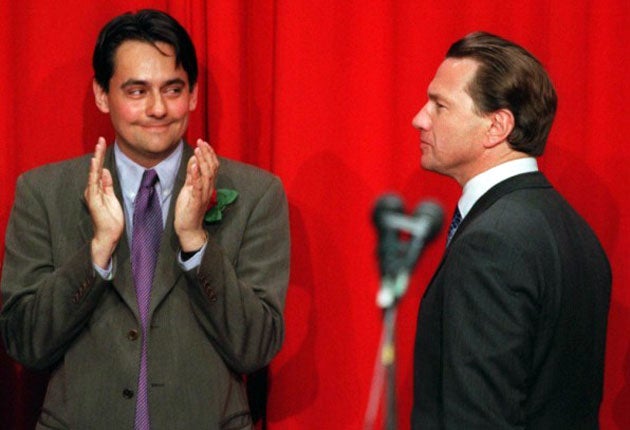Parties join forces to preserve early-hours drama of elections
Senior figures put pressure on returning officers not to postpone counts to next day

Your support helps us to tell the story
From reproductive rights to climate change to Big Tech, The Independent is on the ground when the story is developing. Whether it's investigating the financials of Elon Musk's pro-Trump PAC or producing our latest documentary, 'The A Word', which shines a light on the American women fighting for reproductive rights, we know how important it is to parse out the facts from the messaging.
At such a critical moment in US history, we need reporters on the ground. Your donation allows us to keep sending journalists to speak to both sides of the story.
The Independent is trusted by Americans across the entire political spectrum. And unlike many other quality news outlets, we choose not to lock Americans out of our reporting and analysis with paywalls. We believe quality journalism should be available to everyone, paid for by those who can afford it.
Your support makes all the difference.Political junkies, rejoice: you will still have to "stay up for Portillo" at the next general election.
The threat to counting election votes late into the night, which had seemed likely to destroy a popular feature of political life, will recede today following the intervention of leading figures from the three main political parties.
As many as one-quarter of the nation's returning officers were considering delaying counts at the next general election to the following morning. The move would have stripped election night of much of its drama, with television audiences deprived of witnessing big-name candidates losing their seats in the middle of the night.
In a tight-fought election it could even have meant viewers getting to bed in the small hours not knowing who was going to form the next government. But the Conservatives, Labour and the Liberal Democrats will briefly suspend hostilities to call for election night to be saved.
Although the final decision will rest with individual returning officers around the country, the unity of opinion will put pressure on the senior council officials to protect the tradition.
The charge was led by the Tory chairman Eric Pickles, whose party controls the largest number of town halls. He said: "Having the count on Thursday night is... the lifeblood of our democracy. Never has it been more important for us to re-engage and invigorate the electorate."
The Justice Secretary Jack Straw is considering writing to returning officers to urge them to retain Thursday night counts. An aide told The Independent: "He is inherently sympathetic. He understands why people regard it as part of the fabric of the political system."
Ed Davey, the Liberal Democrats' chair of Campaigns and Communications, said: "It's important for democracy that you retain the excitement of election night and brings the process of voting to a climax."
The three spoke out after a cross-party Facebook campaign to save election night was signed by 3,400 supporters in just three days. Its founder, the ConservativeHome journalist Jonathan Isaby, said: "I'm delighted the cross-party consensus embodied by our grassroots campaign is being matched by the parties nationally.
"It's in the interests of everybody – candidates, campaigners and voters alike – that the votes are counted as soon as polling closes."
Some returning officers plan to follow the lead of the July by-election in Norwich where counting of votes did not start until Friday morning. Areas covering almost 30 constituencies have indicated they plan Friday counts in the general election expected next May. They include Bolton, Reading and Newcastle. Councillors in Newcastle say the move will give employees extra time to check postal votes. The city will also save about £6,000 in overtime payments by not counting through the night.
Supporters of Thursday night counts argue that the extra cost involved once every four or five years is minuscule weighed against their value to the democratic process. The counts in the small hours have become a fixture in the age of televised election results since 1950, with audiences watching the fluctuations of the swingometers wielded by Robert McKenzie and Peter Snow.
A succession of high-octane election night moments have passed into political folklore over the last half-century.
In 1992 the early declaration from Basildon suggested that "Essex man" was about to deliver an unexpected victory for John Major.
Five years later the scale of the Labour landslide under Tony Blair was epitomised by the declaration from true-blue Enfield Southgate, where the then-Defence Secretary Michael Portillo was ousted by a stunned Stephen Twigg.
At the last election, political junkies watched Labour MP Bob Marshall-Andrews tell the television cameras he had lost his Medway constituency to the Tories – only to announce an hour later that he had clung on.
Join our commenting forum
Join thought-provoking conversations, follow other Independent readers and see their replies
Comments